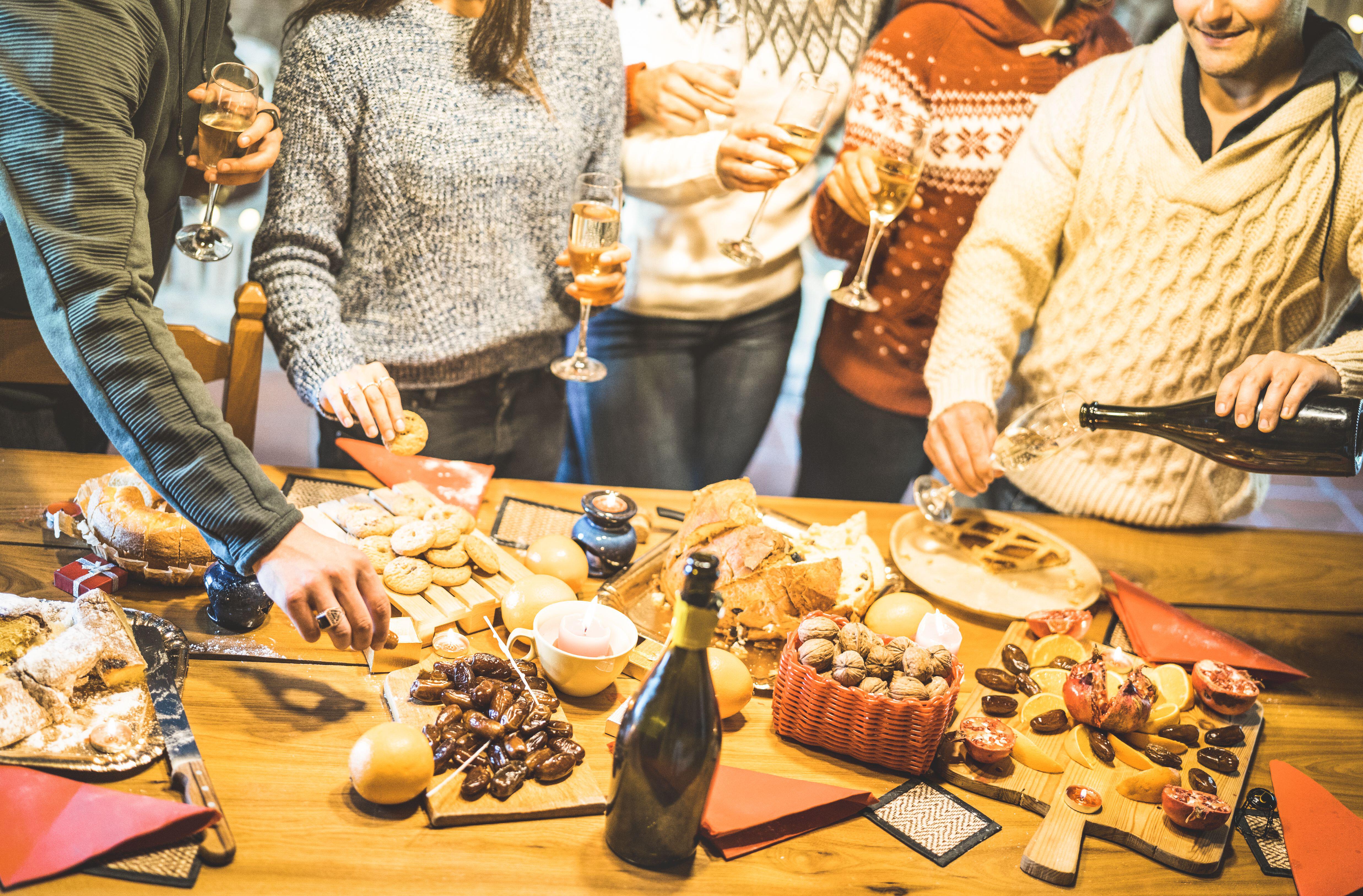Twelve of the most common family fights to expect this Christmas
An expert guide to avoiding arguments this Christmas

Your support helps us to tell the story
From reproductive rights to climate change to Big Tech, The Independent is on the ground when the story is developing. Whether it's investigating the financials of Elon Musk's pro-Trump PAC or producing our latest documentary, 'The A Word', which shines a light on the American women fighting for reproductive rights, we know how important it is to parse out the facts from the messaging.
At such a critical moment in US history, we need reporters on the ground. Your donation allows us to keep sending journalists to speak to both sides of the story.
The Independent is trusted by Americans across the entire political spectrum. And unlike many other quality news outlets, we choose not to lock Americans out of our reporting and analysis with paywalls. We believe quality journalism should be available to everyone, paid for by those who can afford it.
Your support makes all the difference.Family arguments can be an all-too-frequent drain on festive spirit.
Tensions may bubble up when relatives spend hours cooped up in the house together for the first time in ages, and too much drinking can fuel any simmering resentment.
There can be all sorts of reasons behind festive family rows, and chartered psychologist Dr Louise Goddard-Crawley says: “Family rows can, unfortunately, be all too common during Christmas gatherings. We come together with high expectations, old dynamics, and differing personalities, which can sometimes lead to tension.
“However, with a bit of planning and a few gentle boundaries, there are plenty of ways to manage these moments and keep the focus on connection and fun.”
Here are some of the common Christmas flashpoints, and how to avoid them:
1. Over-helping
Too many cooks can spoil the Christmas dinner as well as the broth, and Goddard-Crawley says: “Too many cooks in the kitchen can lead to frustration, so assign roles beforehand to give everyone a clear part to play.”
2. Not helping enough
Although too many people trying to help can cause problems, the opposite can also be true. “An uneven workload breeds resentment,” observes Goddard-Crawley, “so rotate clean-up duties or make it a light-hearted group task for all.”
3. Financial strain
Many families are under financial pressure at Christmas, and money is a very common festive flashpoint. Goddard-Crawley says: “High holiday costs can create tension, so agree on a budget and ask everyone to contribute towards food, drink, games etc.”
4. Generational differences
Grandma’s Christmas expectations may be at odds with what the grandkids want to do, and Goddard-Crawley says this can be dealt with simply by honouring some traditions, while creating new ones to balance preferences.

5. Politics and social views
Different opinions can lead to heated debates, so the best way to avoid all-out conflict is to agree to keep things light or steer clear of divisive topics, suggests Goddard-Crawley. “If your family is prone to heated discussions, suggest a ‘safe topics’ agreement beforehand,” she advises. “A light-hearted group message like ‘Can we all agree to a politics-free Christmas?’ can set a fun but clear boundary.”
6. High expectations
The pressure to create a ‘perfect’ Christmas can lead to tension, but Goddard-Crawley suggests: “Embrace imperfections and focus on spending relaxed time together.”
7. Pressure to get along
Different personalities in close quarters can cause problems, but Goddard-Crawley says: “Keep interactions light, and focus on shared activities to reduce friction.”
8. Choosing who to spend Christmas with
Balancing time between families can create tension, so Goddard-Crawley advises spending alternate years with different branches of the family, or planning visits around the festive period to ensure fairness.
9. Unresolved grudges
Old tensions may resurface when you see family members you’ve not been in touch with for a while, but Goddard-Crawley suggests: “Encourage a focus on the present, gently avoiding sensitive topics.”
10. Gift disappointment
Being disappointed with a gift may cause friction, so Goddard-Crawley suggests agreeing on a spending limit or arranging a secret santa plan in advance. “This way, no one feels pressured to overspend or disappointed by differing expectations,” she says.
11. Drinking too much
Overconsumption of alcohol can lead to unfiltered words, so Goddard-Crawley suggests encouraging moderation or even setting limits for a smoother celebration – although this may have the potential to cause problems itself.

12. Year-end stress
Holiday fatigue can raise tensions, so Goddard-Crawley advises that hosts keep plans flexible and allow downtime to unwind. “If your home has a spare room or cosy nook, designate it as a ‘chill-out’ space where guests can retreat for a breather if they need it,” she suggests. “Let everyone know it’s there for when they want a quiet moment.”
She adds: “It’s easier said than done, but one of the best ways to keep holiday tension low is to set expectations early. A bit of gentle planning can make a world of difference. If you’re hosting, consider adding a light-hearted caveat to the invitation: ‘No politics at the dinner table – let’s keep it festive!’.
“Or if you’re attending a family gathering, you might subtly mention in advance that you’re hoping for a day focused on laughter and connection, steering clear of any divisive topics.
“These clear but friendly boundaries aren’t about being a Scrooge – they’re simply a way to help everyone understand what will make the day run smoothly. These small gestures can go a long way towards creating a holiday filled with good cheer.”


